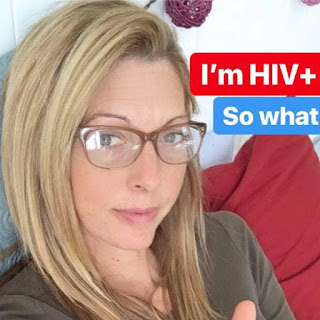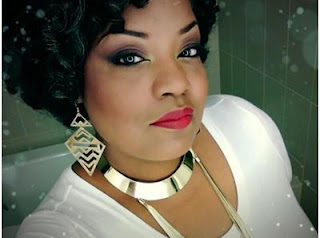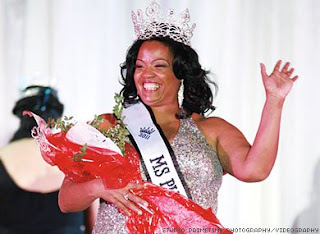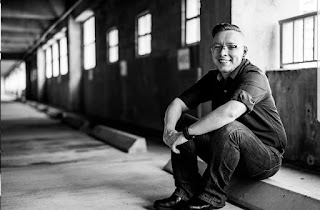By: Jen Laws, Board Member, ADAP Advocacy Association, and HIV/transgender health advocate
There’s a long way to go from being 19 at Covenant House in north Philadelphia to being 34 and a public health policy consultant going back and forth between New Orleans and South Florida.
That 15 year path includes a great deal of good luck, a persistent outlook of good will, and a commitment to patient centered systemic change.
“You’ve got a brain like a computer and I intend to use it,” – Joey Wynn.
Having dabbled in fundraising and being deeply involved in a sex-positive community building culture, I was gifted with a chance to subcontract about a decade ago. Over a few months I expanded my knowledge of payment systems, in particular those changing due to the then recently passed Patient Protection and Affordable Care Act. It was a stroke of luck, opportunity meeting preparedness, that became my basis of knowledge and involvement on policy matters affecting people living with HIV and, in particular, transgender people. Soon after, joining South Florida AIDS Network and becoming half of a dynamic duo, Mr. Wynn saw an opportunity in me he regularly seeks out and fosters – the “next generation” of advocate.
You should know, he bit off more than he could chew.
“I’m gonna need you to watch your language,” – Brandon M. Macsata.
Six years later, deeply immersed in advocating for systemic changes in Florida and regularly offering commentary on legislative and regulatory policy changes aimed at demystifying the process for community members and reminding policy influencers of the need to focus on patient experiences, I had the distinct pleasure of being invited to join the board of directors for ADAP Advocacy Association. I’ve gained a reputation for being frank and sometimes profane in urging funders and influencers to remember the human nature of where HIV thrives and the programming needs to ensure patients thrive. “We’re never going to end any epidemic if we keep sanitizing our programming, our language, and ignoring or avoiding sex.” This is true even for ADAPs. Effective outreach and education of available assistance programs must also speak to the holistic experiences of patients.
“
Promoting Access to Care Among Transgender Men and Women Living with HIV/AIDS” became the first major project I got to work on for the ADAP Advocacy Association. Teaming up with RAD Remedy, the white paper, infographic, and Twitter chat aimed to shift the conversation around treatment priorities for transgender people living with HIV. The project is something I’m still deeply proud of and have used in advocating for systemic change. Along with informing the Human rights Watch project “Living at Risk: Transgender Women, HIV, and Human Rights in South Florida”, Florida’s ADAP program recently added certain hormone replacement therapies to their formulary, recognizing that an effective program doesn’t seek to prioritize care for a patient, but empowers a patient to prioritize their own care – reducing barriers and increasing access.
“I’m glad you exist,” – Tiffany Stringer
Systems change begins with humanizing the very real experiences of frustration and sometimes impossible barriers people living with HIV face in seeking the care we need to survive. PLWH are more than our lab work but we rarely acknowledge that in policy success metrics. Essential to patient driven changes is an oft forgotten notion of empathy; not the concerted sigh and nod but the willingness to take a chance – a risk of investment.
I still find myself in awe anyone cares much what I think much less seeks out my opinion on matters. And yet, at state meetings and in planning, I get a great deal of “what do you think?” I like to think it’s because I’m stubborn and bold. There’s no harm in asking and if I get told “no”, I’m back in the same spot I was before asking. Pointing out needs to planning bodies in states with bans on syringe funding as we approach the age of injectables, the logistical needs for staffing, opportunities to extend education via lab hours (hopefully solving both needs in “one swoop”), and informing policy positions and goals by leveraging existing payment systems – all of this work is my passion because it serves as a reminder “the boat rises from the bottom”. Until those with the least means, the most affected, are safe and happy and healthy, all of us face the risk of losing. Our systems cannot be devoid of the humanity they seek to affect.
As much as my colleagues hound me about pursuing an advanced degree, I’ve refused. In a nation with a seemingly impossible student loan crisis on the horizon, why would I seek additional debt? Every ounce of payment systems education I have, from 340B to ADAPs to ACA implications and implementation, is self-taught; webinars, fact sheets, diligent reading and memorization of statute, ruling, and regulation, case studies, pilot projects, endless listening to committees. I’m a voracious reader with a talent to translate lawyered language and legalese into plain, digestible, applicable language – a necessary tool for community engagement and education. I stand on this position as a matter of principle as well as the well-studied fact most people learn the necessary skills for their employment on the job. In an environment of advocacy, where a need for diversity of thought matters, it is an issue of principle to demand that if an employer or potential contract wishes for me (or anyone) to have an advanced degree, they include that as part of the offered compensation. We’re never going to break the molds laid before us and reach our goals by training out different approaches to problem solving. Additionally, integration of lived experience and work experience matters in patient advocacy and in much of non-medical service provision. I will absolutely die on the hill that demands our funders and our advocacy and service organizations hire from affected community and stop demanding an unreasonable and unnecessary institutional educational background. Employment and housing are the core issues PLWH face as barriers to care. So take this recount of my history as a reminder, should you be a funder or in a position of hiring for an organization, that your greatest opportunity to take a risk and “win” is all around you.
As the US has plateaued in declining HIV transmission rates, as our own federal government has given a weak nod at “Ending the HIV Epidemic”, I’d like to take a moment for the agencies, funders, and influencers reading this:
Take risks. Read the room, if you will. Today’s environment, in the age of COVID, our work hasn’t stopped; to the contrary, it’s more important now than ever. But our organizations are also struggling now more than they have in years. As we face a mounting jobless and eviction crisis, our community and industry’s historical positions will be exacerbated.
So leap. Take a big jump and hire someone interesting you wouldn’t traditionally hire. Fund the idea or agency who submitted a rushed grant proposal. Find and fund contractors who have left aging agencies due to their refusal to adapt and modernize.
******************************************
I wanted to include some background as to how this profile came about and what I find important in my work.
Brandon tells me I’ve provided leadership on trans issues and advocated for meaningful, systemic changes in access to care, providing program and policy insights and analysis. He’s been asking me to write this profile 3 months. Never one to decline a writing opportunity, I had to ask myself why I avoided this one.
There’s likely a whole post-doctoral class to be written on trans guys who maintain cultural standards of survival cisgender women are acculturated to, from doubting the impact of one’s work to prefacing expertise with “I think”. And while there’s some of that mixed up in my hesitancy to talk about myself, there’s more and I think…know it’s important to share with the advocates reading this.
You matter more than you know. Your humility and reminder to remain empathetic and ethical is critical to ensuring PLWH drive our own determination. Your story matters and you need to make sure someone else isn’t telling it for you. You get to talk about the “by chance” moments without viewing your work as “less than”. We all got here by a series of chances – some great, some not so great – and a great deal of hard work. Touting your successes is something you’ve earned. And not sharing them isn’t an issue of humility. It’s doubting your value because in this world, if we struggle, we are taught to doubt the earned nature of our successes and fear the rug being pulled out from underneath us should be “brag too much.”
You don’t have to do that. You deserve and have earned your success. Brag a little.
Disclaimer: Guest blogs do not necessarily reflect the views of the ADAP Advocacy Association, but rather they provide a neutral platform whereby the author serves to promote open, honest discussion about public health-related issues and updates.









